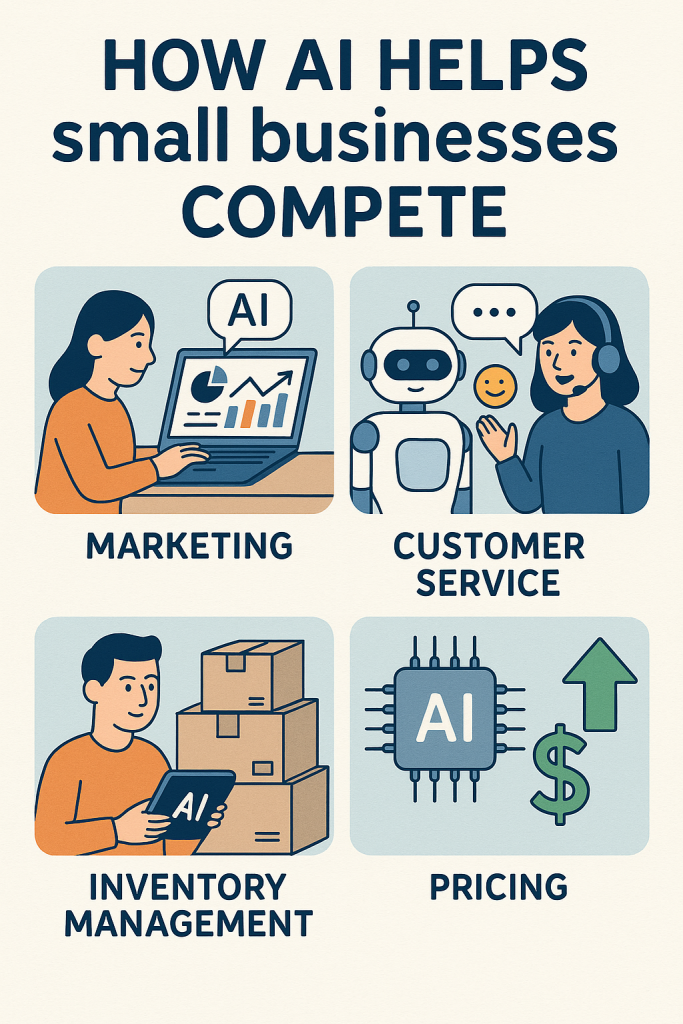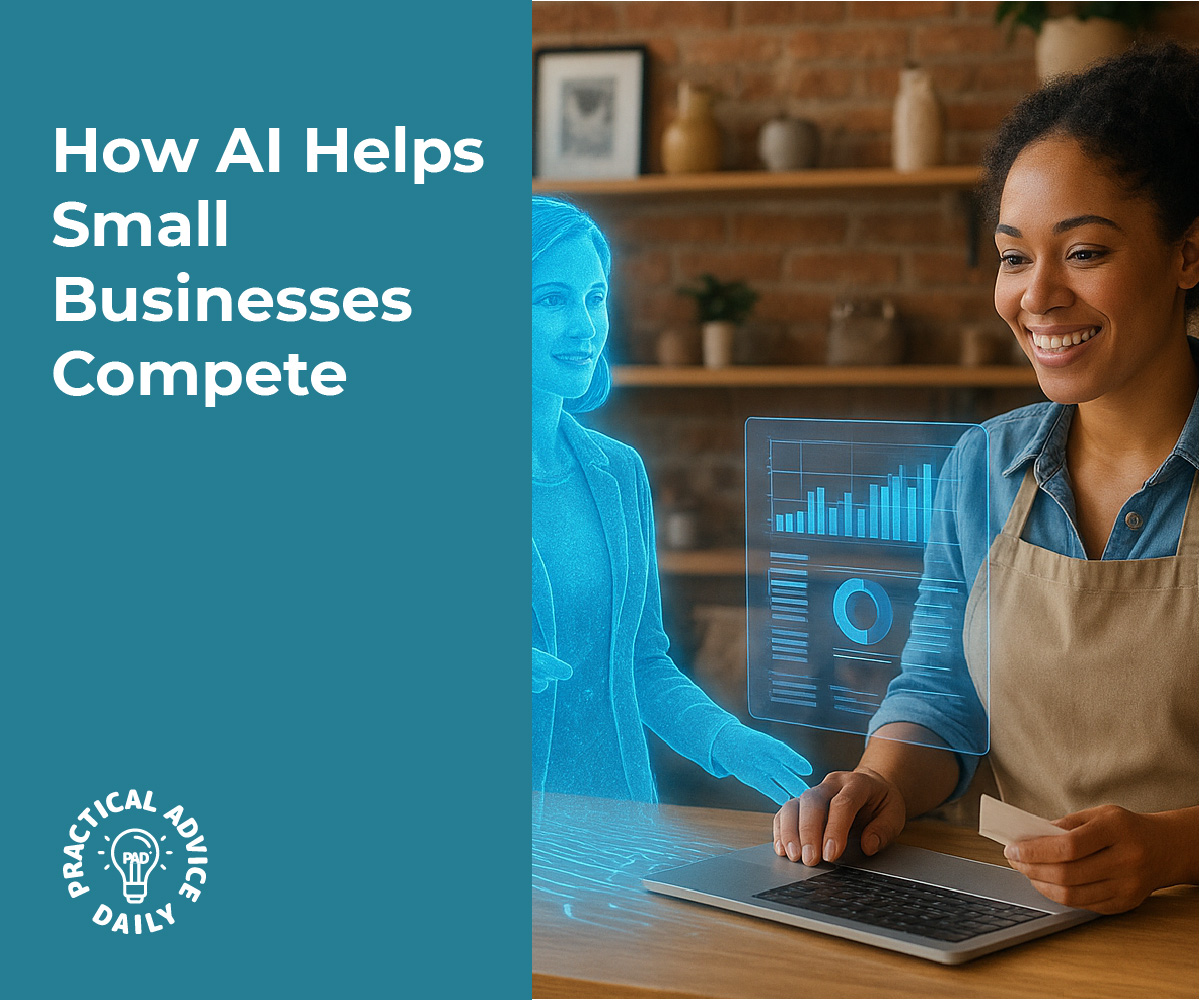Running a small business can feel like a constant uphill climb. Big companies have more money, staff, and resources. But here’s some good news: artificial intelligence (AI) is no longer out of reach. Today, affordable AI tools can help you do things faster, smarter, and often better than before.
In this article, we will look at easy-to-use AI options for marketing, bookkeeping, and customer service. Even if you don’t think of yourself as “tech-savvy,” you’ll see that these tools are designed to be beginner-friendly and budget-conscious.
Table of Contents
Key Takeaways
- AI tools are now affordable and designed for small businesses.
- Marketing AI can help attract and keep more customers.
- AI bookkeeping tools save time and reduce errors.
- Chatbots and virtual assistants improve customer service around the clock.
- You don’t need technical skills to start using most of these tools.
AI in Marketing: Attracting More Customers
Marketing is often the hardest part of running a small business. You want to reach new customers but don’t have the budget for big advertising campaigns. AI tools can make marketing more effective without costing a fortune.
Examples of Affordable Tools
- Canva with AI features: Helps you design eye-catching social media posts, flyers, or ads in minutes.
- Mailchimp: Uses AI to suggest the best times to send emails so more people read them.
- Lumen5: Turns blog posts into short videos automatically, great for social media promotion.
Real-Life Example
Imagine you own a small bakery. Instead of spending hours designing a Facebook post, you could use Canva to generate ready-made templates. Then, Mailchimp can help you send out a weekly newsletter with promotions at the time your customers are most likely to check their inbox.

AI for Bookkeeping and Finances
Keeping track of money is one of the least enjoyable tasks for most small business owners. AI-powered bookkeeping tools can help you stay on top of expenses, invoices, and even taxes.
Examples of Affordable Tools
- QuickBooks: Automatically categorizes your expenses and generates reports.
- FreshBooks: Helps with invoicing and tracks time for service-based businesses.
- Wave: A free tool for simple accounting and receipt scanning.
Real-Life Example
Let’s say you run a small landscaping service. Instead of juggling paper receipts, you can snap photos with Wave’s mobile app. The AI system will read and organize them, saving you hours of work at tax time.
AI in Customer Service: Being Available 24/7
Customers today expect quick answers, even outside business hours. Hiring full-time staff to cover every question isn’t realistic for small businesses. This is where AI-powered chatbots shine.
Examples of Affordable Tools
- Tidio: Adds a chatbot to your website that can answer common questions.
- ManyChat: Connects with Facebook Messenger to handle customer inquiries.
- Zendesk with AI: Helps manage email and chat requests in one place.
Real-Life Example
Picture a local gift shop with an online store. A customer visits the website at 10 p.m. and asks, “Do you ship to other states?” Instead of waiting until morning, a chatbot like Tidio can give an instant answer, keeping that sale from slipping away.
How to Get Started with AI (Step-by-Step)
If you’re curious but not sure where to begin, here’s a simple roadmap:
- Pick one area to improve first: Marketing, bookkeeping, or customer service.
- Try a free version: Many AI tools offer free plans or trial periods.
- Test with one task: For example, use Canva to create your next flyer or try Wave for your next expense report.
- Measure results: Did it save you time? Did you reach more customers?
- Decide to upgrade: If it works, consider moving to a paid plan for extra features.
Final Thoughts
AI isn’t just for big corporations anymore. Small businesses can use these tools to save time, reduce stress, and reach more customers without breaking the bank. The best part is you don’t need a tech background to get started.
Think of AI as an extra pair of hands that never gets tired. By starting small, you can gradually bring in more AI support and stay competitive, even against larger companies.
